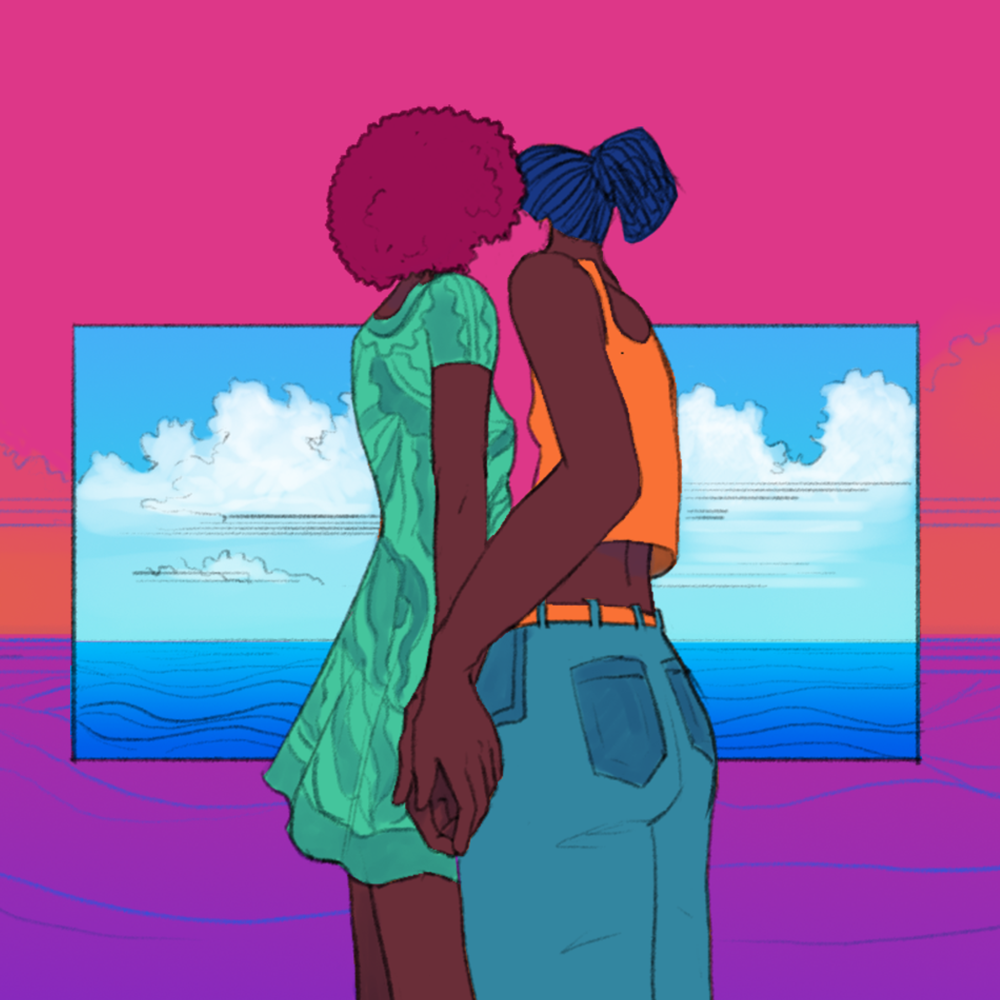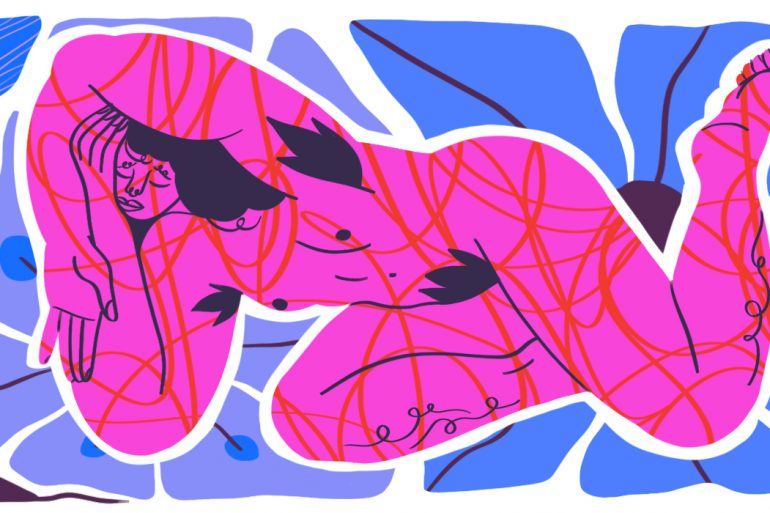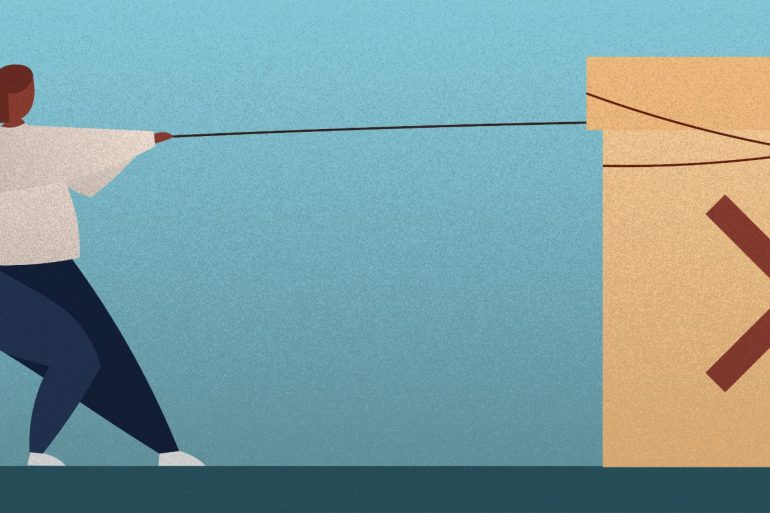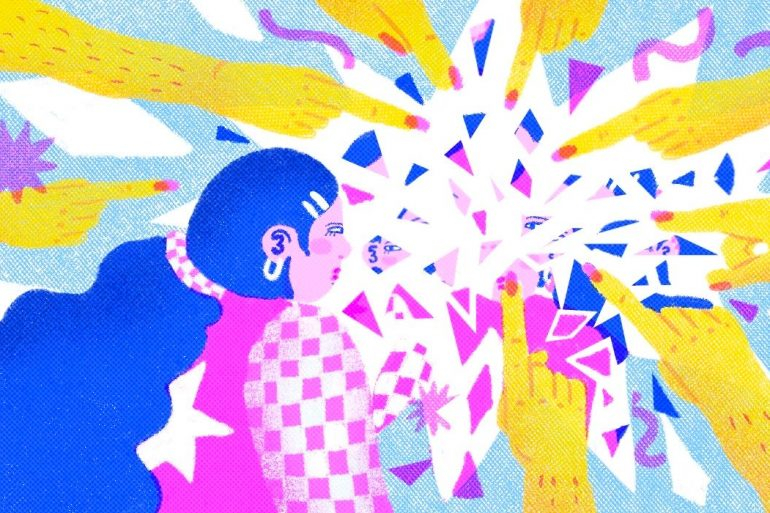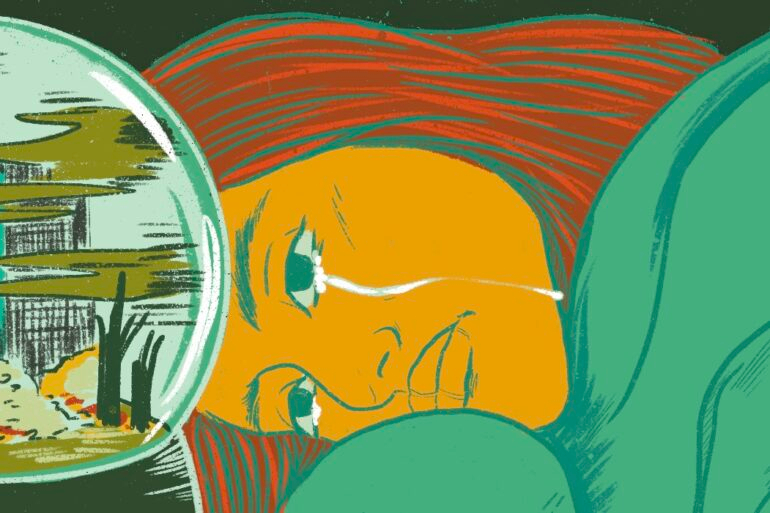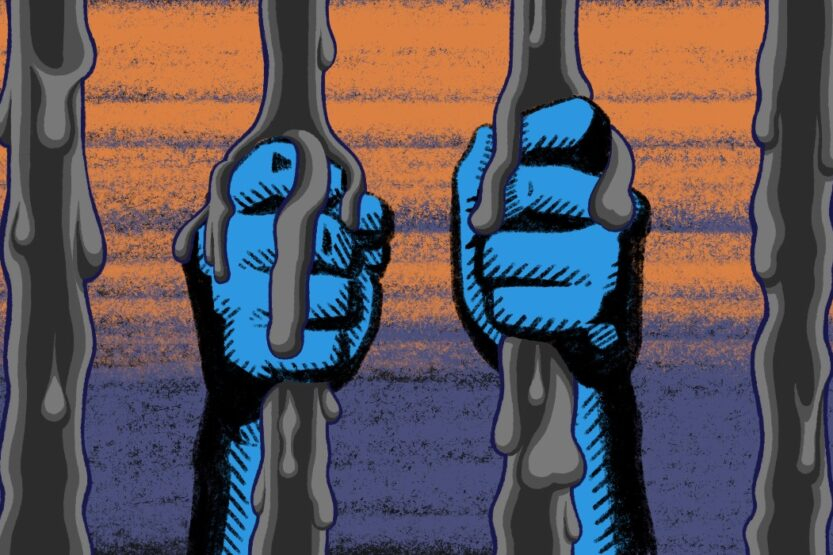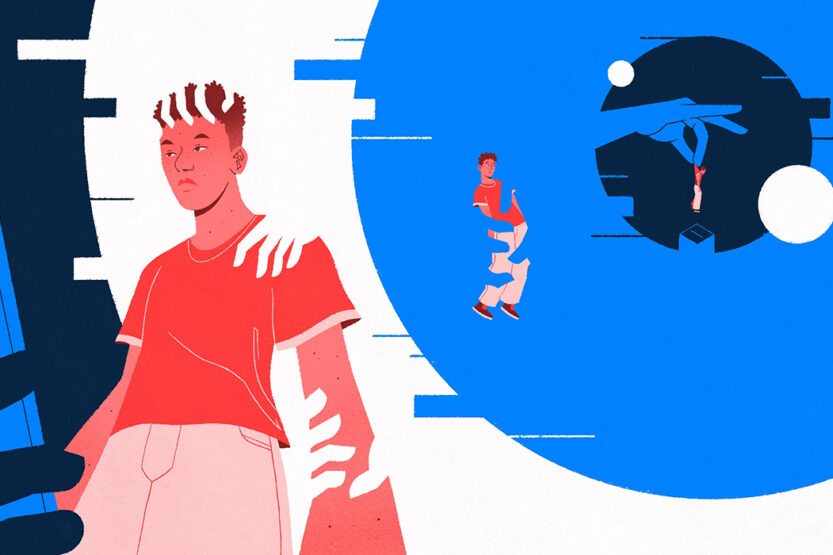Ayo met Kiara at a party three years ago. They soon become inseparable. They look like best friends to everyone on the outside, but are so much more to each other. There are clubs and spaces and apps, but Ayo has never been able to take the leap. Because good Nigerian Christian girls don’t feel that kind of way. Don’t do that sort of thing.
River and Theo meet every week, but only in the dark. Only when no one is watching. For Theo, it works just fine to whisper sweet nothings into River’s ears. Those nothings are everything – to River, anyway. Neither of them could face what their respective aunties would say, if they knew the truth.
Knowing yourself
In some ways, I’m lucky. I’ve known that I was gay since I was six years old. In fact, I remember coming home from school one day, throwing myself on the sofa, and saying out loud: “I wish girls could like girls the same way that boys do. But they can’t, can they?”
I was testing the waters in my Caribbean household. It didn’t feel like ‘coming out’, but in that moment I was met with total silence. An awkward and uncomfortable silence, that was enough to tell me that maybe I should keep those feelings to myself. Maybe this thing about me was not ok.
In spite of this, I still count myself lucky, because from a very young age I knew myself – something that others might not be afforded the space within which to realise. I may have spent the 10 years following my announcement projecting a different picture of myself to the outside world, but still, deep down, I knew who I was. For many queer people, that is relatable. Whether the realisation comes at 6, 13, 25 or 50, the moment that things click and you come out to yourself, everything changes, no matter what you do next.
Knowing the world
Being queer, lesbian, gay, bisexual or trans in our British society has been – and still is – a challenge. Reported homophobic hate crimes are up by 210% and transphobic hate crimes 332% over the last 6 years. This, along with anti-trans rhetoric, also tells us that existing as part of the LGBTQI+ community in the UK is in fact becoming even more difficult.
Our government has leaned into the so called ‘ culture war’ and queer people continue to be the target. From our equalities minister defending beliefs that same-sex marriage is wrong, to Westminster’s use of Section 35 to block Scotland’s Gender Recognition Reform Bill, even policy in the UK is becoming anti LGBT.
And as if navigating Western society wasn’t hard enough, for many BIPOC people, navigating queerness within the bounds of their cultures and traditions poses even greater complications.
I’ve found that finding love, acceptance, and belonging across the intersections of our identities can be one of the biggest challenges of our lives. So much so that often people find themselves in secret relationships, or dating people who can’t commit due to complex cultural or familial dynamics, traditions, and rules.
I was 19 when I came out to an old friend, who’s of West African origin. When I told her about my girlfriend at the time, she laughed and said, “wow, you Black Brits really are just brown for colour.” We don’t speak anymore.
I didn’t know how to negotiate the pain that her statement inflicted, as a Caribbean descendent of enslaved West Africans. I didn’t go on a rant about how, in pre-colonial times, sexuality was fluid, and how homophobia is a colonial import to the continent of Africa. I didn’t quote articles about the long history of African homosexuality, or challenge Zimbabwe’s former President Robert Mugabe’s false narrative that homosexuality is “un-African” and a “white disease.”
In fact, I said nothing. But it was one of many reminders of the beliefs that many people around the world hold, and don’t even question. And these beliefs deserve to be challenged. They deserve to be interrogated by us, within our communities and cultures.
The fact of the matter is, colonialism did its thing. Most countries that uphold anti-LGBTQ+ laws were once British colonies, and this legacy of homophobic violence is still prevalent –, and as seen most recently with the legislation around the death penalty for “homosexual acts” within Uganda. These laws, and the social environment they create, are often extreme and violent, forcing people to stay in the closet for their safety.
From India to Ghana, Singapore to Jamaica, the infiltration of colonial, Western laws and ideals has erased so much of our histories, with the criminalisation of queerness as collateral damage. Anti-LGBTQI+ narratives continuously peddled behind a false veil of religious integrity.
Knowing when it’s over
Many years ago I found myself in a… situationship. A situationship with a girl who reciprocated the feelings I had for her, but was never truly able to claim them. She struggled to imagine a world where her Caribbean family would treat her the same if she came out. She’d heard phrases like ‘anti-man’ and ‘batty boy’ bandied around at parties, and seen the way people flinched if a same-sex couple held hands on TV. She saw what happened to that Aunty at church who she never sees anymore because her son came out.
All these things compounded in a way that made it hard for her to love herself. And I could relate. But finding love with a partner who is unable to claim you or the relationship openly can do real harm. When I was in this situationship, I realised that shrinking myself to keep the relationship going was doing more harm than good to my mental health. With a heavy heart, and the offer of friendship, we went our separate ways. Just like our white counterparts, queer people of colour deserve to be loved out loud – without running the risk of making us feel any less tied to our culture.
Knowing how to move on
Music will always be my own space to explore these ideas. To practise my own little kind of queer activism – my daily act of resistance. My latest single, ‘Off My Mind’, narrates this situationship I found myself in all that time ago.
I love writing songs that seem fun and light on the surface, but on another level have a depth that forces the listener to question things. ‘Off My Mind’ narrates heartbreak and hints at the consequences of loving in secrecy. However, fundamentally the message is one of self love – doing what you need to do for your own mental health and emotional needs. By explaining the story behind the song, I hope that ‘Off My Mind’ can open more conversations about being BIPOC and queer, because sometimes it’s hard to honour your identity fully.
Now, years after I originally wrote ‘Off My Mind’, I have found myself in a beautiful, loving, queer relationship, and they are my best friend. This relationship makes me feel all of the things I dreamt I would feel when I was six years old, but feared I would never get to. It has to be possible for all of us to be loved out loud and we shouldn’t settle for any less. Not because it’s easy, and not because our families will necessarily understand. But because every time we don’t, we tell ourselves over and over again that we have something to hide, that we don’t deserve that kind of love.
In too many parts of the world, queer people of colour are unable to safely love out loud, and that has to change. Maybe that change can start right here with us in the diasporas. Our love and our happiness in and of itself is a radical act – a daily act of resistance which could shape queer realities for future generations.
Subscribe to shado's weekly newsletter
Exclusive event news, job and creative opportunities, first access to tickets and – just in case you missed them – our picks of the week, from inside shado and out.

What can you do?
- Off My Mind is out now on all streaming platforms. Check out the music video HERE
- Say It Loud Club T-Shirts : To celebrate the release of Off My Mind I have designed T-shirts as Merch for myself and LGBT Refugee charity Say It Loud Club. I am so excited to be working with this organisation that works tirelessly to create community in the UK for people who have had to flee their homes due to their sexuality. 50% of profits from these T-shirts go straight to Say It Loud Club and in this link you can buy a t-shirt for an LGBT refugee member of Say it Loud Club.
- BOOTYCANDY: This incredible play called Bootycandy played its first ever UK run earlier this year. Much like broadway show A Strange Loop, it’s an incredible script to read about growing up queer, black and confused. Although it might not be back on stage for a while it’s well worth a read.
- TWO TWOS Podcast : Celebrating being queer and part of diaspora podcast Two Twos is hosted by two black lesbian women living in London and speaking about topics that allow them to be unapologetically themselves.
